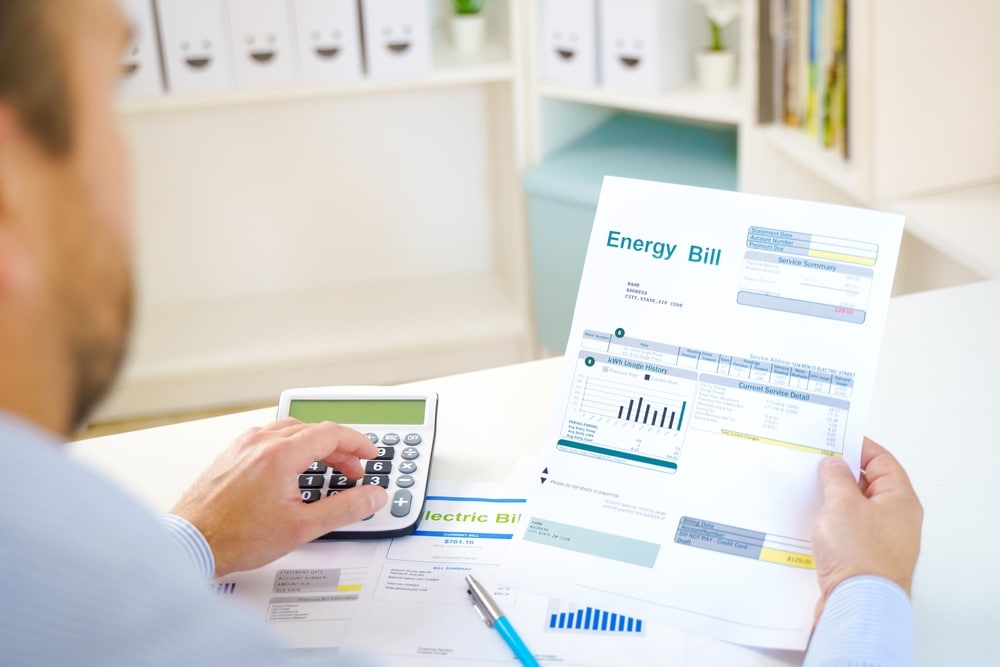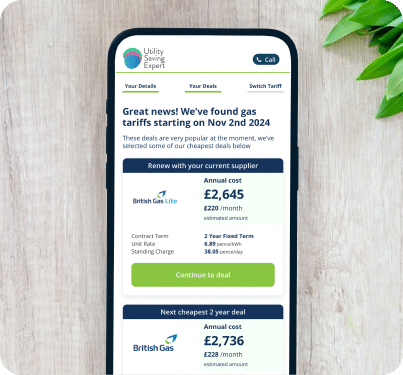How To Reduce Your Business Energy Costs and Improve Your Bottom Line
In today’s fiercely competitive business landscape, managing energy costs has never been more critical. Every penny saved can contribute to improving your company’s bottom line, allowing you to reinvest in growth and innovation.

Article Contents
Introduction
This article delves into the world of reducing energy costs while enhancing overall efficiency, revealing the secrets to optimising your energy usage for maximum savings and productivity.
As you read on, you’ll discover how businesses can unlock the full potential of their energy resources to create a sustainable foundation for success. It’s not just about cutting back – it’s about finding smart solutions that power your operations without draining your budget. By embracing innovative strategies and technologies, companies can stay ahead of the curve while making a tangible impact on their financial health.
In this age of environmental awareness, businesses must also consider the benefits of incorporating sustainable practises into their operations. The efficient use of energy not only improves your bottom line but also boosts your brand image and demonstrates a commitment to preserving our planet for future generations.
So, whether you’re an entrepreneur seeking new ways to cut costs or an industry leader looking to enhance operational efficiency, this article is packed with insights that will help you revolutionise your approach to energy management. Read on and prepare to embark on a journey towards a brighter, more sustainable future for your business.

Compare Business Energy Prices, Suppliers & Rates

Choosing the Right Business Energy Tariff or Contract
Managing energy costs is a vital aspect of running a successful business. The key to unlocking significant savings and optimising your energy usage lies in securing the right business energy tariff or contract. By understanding the various pricing options available, you can ensure that your business thrives while minimising environmental impact.
The UK market boasts a diverse range of energy suppliers, each offering unique rates and terms. To find the best fit for your business, it’s essential to compare the different suppliers and assess their offerings. Keep an eye out for competitive rates, flexible contract durations, and customer-focused support services.
Contract terms and conditions play a pivotal role in determining the suitability of an energy tariff for your business. Scrutinise these details to uncover any hidden charges, minimum consumption requirements, or termination fees. In doing so, you’ll safeguard your business against unforeseen expenses while maximising cost savings.
Regulatory compliance is another crucial consideration when choosing an energy tariff or contract. Ensure that your selected supplier adheres to relevant guidelines and industry standards to avoid penalties that might tarnish your company’s reputation.
Selecting the right business energy tariff or contract is crucial for improving your bottom line while upholding sustainable practises. by evaluating various pricing options, comparing suppliers, scrutinising contract terms, and prioritising regulatory compliance, you can unlock extraordinary savings and propel your business towards unparalleled success.
Implementing Energy Efficiency Measures
Imagine this: your business, flourishing with maximised profits and streamlined operations – all while minimising its carbon footprint. Sound too good to be true? Think again! Implementing energy efficiency measures is a sure-fire way to transform that vision into reality. Let me show you how.
First, conduct an energy audit to unveil potential savings hidden within your business’s nooks and crannies. By evaluating your current energy usage patterns, you’ll uncover areas ripe for improvement – allowing you to fine-tune your approach and reap the rewards of cost-effective energy management.
Next, invest in energy-efficient equipment and technologies. Replace outdated machinery with cutting-edge alternatives designed to reduce waste without compromising performance. Remember, every watt saved contributes to your bottom line, so don’t hesitate to make the switch!
As for optimising energy usage patterns, consider implementing smart meters and energy management systems. These powerful tools offer real-time insights into your consumption habits, enabling you to identify inefficiencies and implement targeted solutions for maximum impact.
So, there you have it: by conducting an energy audit, investing in state-of-the-art equipment, and harnessing the power of smart technologies, you can propel your business towards a future of reduced costs and increased sustainability
Like what you’re reading? Get more in our monthly newsletter!
Get the latest news and articles straight to your inbox from Utility Saving Expert
Embracing Renewable Energy Solutions
In the quest for cost savings and environmental stewardship, renewable energy solutions present a golden opportunity for businesses to thrive. The advantages of utilising green energy sources are manifold, encompassing financial gains, enhanced brand image, and a reduced carbon footprint. So why not join the green revolution and witness your business flourish?
Renewable energy certificates (RECs) and power purchase agreements (PPAs) serve as powerful instruments in supporting businesses’ transition to cleaner energy sources. By investing in RECs or signing PPAs, you can secure a stable supply of renewable energy while demonstrating your commitment to sustainability.
Net metering and distributed energy resources (DERs) further empower businesses to optimise their green energy usage. Net metering allows companies to sell surplus energy back to the grid, offsetting costs and boosting profits. DERs enable businesses to generate their own electricity through renewable means, thus reducing reliance on traditional power sources.
Finally, embracing renewable energy showcases your company’s dedication to social responsibility and environmental stewardship. By implementing eco-friendly practises, you’ll not only cultivate a positive brand reputation but also contribute to preserving our planet for generations to come.
Integrating renewable energy solutions into your business strategy is a win-win scenario. you’ll enjoy cost savings, bolster your brand image, and make a tangible impact on the environment. don’t let this chance slip by – embrace the future of green energy today!
Managing Energy Risks and Ensuring Business Continuity
In the dynamic world of business, unexpected power outages and equipment failures can strike at any moment, jeopardising your operations and bottom line. Fear not! With the right risk mitigation strategies in place, you can safeguard your company’s vitality while maintaining energy security.
Firstly, it’s essential to invest in backup power sources such as generators and uninterruptible power supply (UPS) systems. These solutions provide a reliable lifeline when faced with unforeseen disruptions, ensuring that critical operations remain up and running even during the most trying times.
Load shedding is another powerful technique for managing energy risks. By strategically reducing non-essential energy usage during peak demand periods or emergencies, you’ll conserve vital resources and prevent overloading your electrical infrastructure.
Of course, energy security goes hand-in-hand with infrastructure optimisation. Regularly assess the condition of your energy systems to identify vulnerabilities and opportunities for improvement. In doing so, you’ll bolster the resilience of your operations while enhancing efficiency.
Maintenance management is crucial for ensuring business continuity. Proactively maintain your equipment, performing routine cheques and repairs to minimise downtime due to breakdowns or malfunctions. Partnering with a reliable energy supplier is equally important – they’ll ensure a consistent flow of power to keep your business thriving.
In summary, managing energy risks is pivotal to preserving both the environment and your company’s success. By implementing robust risk mitigation strategies such as backup power sources, load shedding, infrastructure optimisation, and diligent maintenance management, you’ll fortify your business against unforeseen challenges while promoting sustainable growth.
Conclusion
The journey towards reducing your business electricity costs and embracing a sustainable future is a multi-faceted endeavour. by implementing key strategies such as selecting the right energy tariff or contract, investing in energy-efficient technologies, and adopting renewable energy solutions, you can optimise your energy usage and bolster your bottom line.
Energy management plays a pivotal role in improving your business’s financial performance while fostering environmental stewardship. By conducting regular audits, proactively maintaining equipment, and ensuring uninterrupted power supplies, you’ll safeguard your operations against unforeseen challenges and promote business continuity.
Now is the time to act! Don’t let this opportunity to enhance your business’s profitability and sustainability slip through your fingers. Implement these essential strategies today and witness the transformative power of effective energy management. Your business will thrive, your carbon footprint will shrink, and ultimately, you’ll contribute to a greener future for all.
To find the best business gas tariff or contract, begin by assessing your company’s unique energy requirements. Investigate your current consumption patterns and identify peak demand periods. Next, compare various suppliers, their offerings, and associated costs. Don’t forget to factor in any hidden fees, contract terms, and customer service quality. Consulting an energy broker may also prove beneficial in navigating the complex landscape of tariffs and contracts.
Energy-efficient technologies worth considering include LED lighting systems, smart meters, energy management software, high-efficiency heating and cooling systems, and solar panels. Remember to assess each technology based on your specific operational needs, budget constraints, and overall sustainability goals.
Renewable energy solutions offer numerous financial benefits like reduced utility bills, potential government incentives, and long-term cost savings due to their durability. Environmentally speaking, they contribute to a lower carbon footprint by tapping into sustainable resources like solar, wind or hydro power – fostering a greener future.
Strategies for mitigating energy-related risks include investing in backup power sources (e.g., generators or UPS systems), implementing load shedding during peak demand periods, optimising infrastructure through regular cheques and maintenance, partnering with reliable suppliers, and staying compliant with industry regulations.
To ensure compliance with industry regulations and standards related to energy usage, familiarise yourself with relevant legislation at local and national levels. Invest in regular audits of your facilities to identify gaps in compliance while also seeking expert advice when needed. Implementing an effective energy management system will help you monitor consumption patterns and maintain adherence to standards as you work towards a more sustainable and efficient business model.
